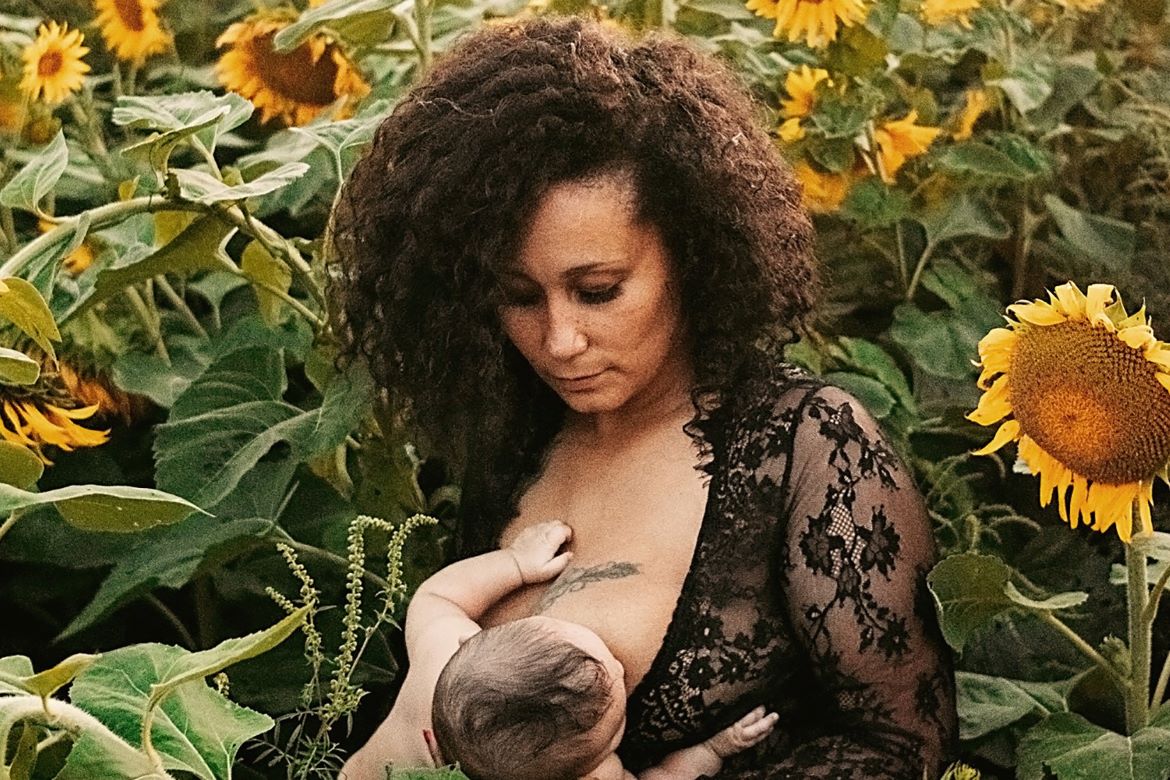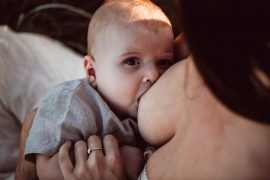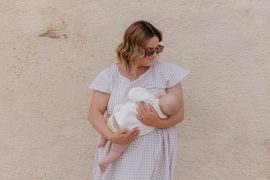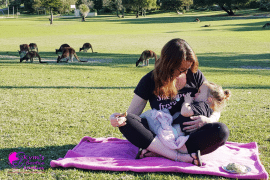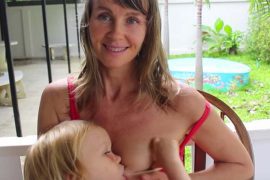By Angelia Allen
Breastfeeding has been one of the most confusing, rewarding, trying, and satisfying things I’ve ever done.
My little one is 5 months old. He exclusively breastfeeds. My son was born early so we spent the first few weeks of his life in the NICU. At that time, we couldn’t do our skin-to-skin or even any latching until he was approximately four days old. A couple days later we did our first feed. During this time, I would sit next to his incubator, put my hand on his chest and pump. Our skin-to-skin contact helped my milk production for the first week of our journey.
During this time, I learned my milk contained higher protein since it was still premature. It contained more protein and minerals, such as salt and contained different types of fat, which enhanced his development and his brain and neurologic tissues, which are especially important for premature babies such as my son.
We couldn’t do direct feeds so I pumped and stored milk every 3 hours to ensure he got the necessary nutrients that were essential for his growth and development, and also to keep my supply up.
My son was 6 days old when we did our first direct feed, although he still had his feeding tube as we wanted to make sure he could handle my milk before removing it. After 3 three days of successful feeds, it was removed with no incident. I felt like we’d hit the lottery: so many emotions were running through my body. My baby boy was only 9 days old and had already overcome so much. He was strong through it all.
The following 6 days, he got stronger and stronger, defying all odds and amazing the doctors and me.
For the last 2 days of my baby boy being in the NICU, he was moved to the step down unit, which only meant we were closer to going home. While on that unit, my son was having full feeds every 3 hours directly on the breast or being fed bottles by the nurses.
Then came the day of discharge. The whole treatment team came that day and we discussed so many different things. Things like how strong my baby boy was, discharge instructions and numbers to get hold of people for lactation and medical issues.
They attributed his fast progression to my liquid gold (your early milk, known as colostrum, is often yellow-ish in colour and helps your baby’s body begin adapting to life).
I couldn’t believe that something like my milk helped him heal and finish maturing his lungs so he could breathe our air without oxygen or a ventilator. He was able to drink my milk without a feeding tube and his blood could pump through his veins without the nitric machine. At the time, I didn’t completely understand how much breastfeeding helped infants, but what I did know was that I was going to do it no matter what.
That was the beginning of our journey we call breastfeeding.

